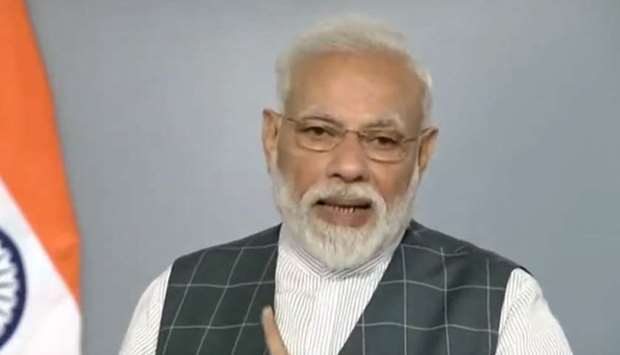India said Wednesday it shot down a low-orbiting satellite in a missile test that proved the nation was among the world's most advanced space superpowers.
In a rare address to the nation just weeks out from a national election, Prime Minister Narendra Modi said India had joined the United States, Russia and China in accomplishing the feat.A missile fired from a testing facility in Odisha, eastern India, downed the live satellite in orbit at around 300 kilometres (185 miles) in "a difficult operation" that lasted around three minutes, the prime minister said.
"This is a proud moment for India," the prime minister said, in his first televised national address since late 2016.
"India has registered its name in the list of space superpowers. Until now, only three countries had achieved this feat."
It comes a month after Indian and Pakistani fighter jets engaged in a dogfight over the disputed border in Kashmir, in a serious military escalation between the nuclear-armed rivals.
An Indian jet was shot down and a pilot captured by Pakistan, which had launched retaliatory air raids after Indian planes bombed Pakistani territory for the first time in decades.
Modi said the missile test against the satellite was peaceful, and not designed to create "an atmosphere of war".
"I want to assure the world community that the new capability is not against anyone. This is to secure and defend the fast-growing India."
The United States and former Soviet Union carried out their first successful anti-satellite missile tests in 1985, and China in 2007.
All are now said to be working on so-called Star Wars laser arms to destroy satellites.
With satellites increasingly important because of their intelligence gathering role -- and major nations seeking to gain a foothold in space -- the United States in 2014 rejected a Russian-Chinese proposal for a treaty to ban weapons in space, saying it was "fundamentally flawed" because of the lack of weapons verification measures.
In a statement released after Modi's announcement, the foreign ministry said India "has no intention of entering into an arms race in outer space".
"We have always maintained that space must be used only for peaceful purposes," the ministry said.
Modi said the test did not violate any international treaties and was for the betterment and safety of India's 1.3 billion people.
The announcement comes ahead of a national election in which Modi is seeking a second term in office.
Voting starts April 11 and will last nearly six weeks, with close to 900 million Indians eligible to vote in the world's largest election.
The main opposition Congress party, whose leader Rahul Gandhi is challenging Modi, congratulated scientists on their "groundbreaking achievements".

